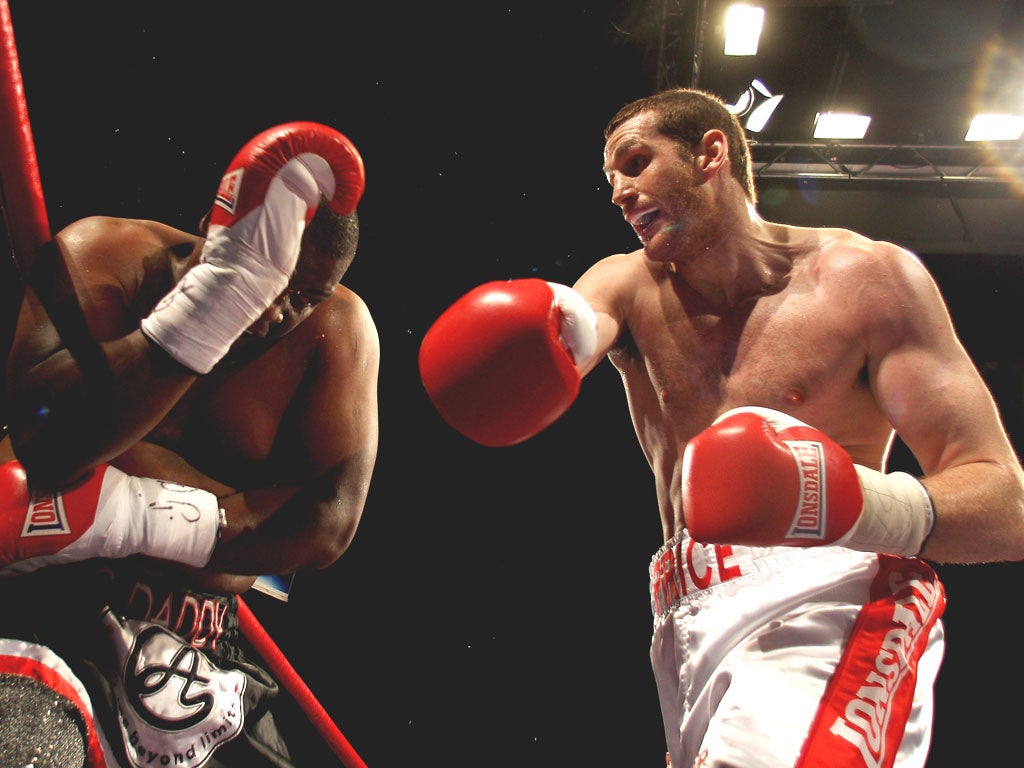Bunce on Boxing: Punters are paying the price for TV's business interests
The game is in need of an injection of sense regarding fights that should be taking place

George Foreman pursued Muhammad Ali through the courts, in the press and tried for years to get a rematch of their "Rumble in the Jungle" fight.
Big George finally gave up and went into retirement without the chance of revenge in 1977, three years after losing his world heavyweight title to Ali. Foreman had also just lost a fight and, dehydrated and weary, had an epiphany in the dressing room and devoted his life to God and, as he said, "the fridge".
It is certainly not unique for fights to get lost as promoters and managers bicker over money, but right now the old game is in need of an injection of sense regarding fights that should be taking place.
There was a time when two good British boxers fighting at the same weight had no option but to fight each other. It was good for the fans and it made the two rival fighters better in most, but not all, cases. British world champions John H Stracey, Maurice Hope, Jim Watt and Alan Minter all lost against domestic rivals before winning their titles.
The modern problem is that decent fighters have too many options and can do what they like with their titles, which includes simply relinquishing them to avoid an unwanted fight. At the top level, the sanctioning bodies conveniently split their titles into little packages to allow fighters to avoid other fighters and, importantly, maintain a lucrative presence on television.
When Stracey and the other British world champions from the Seventies lost, they had far fewer opportunities, with only one TV company showing fights and only two belts at world level to fight for. They had to fight the best British boxers or risk simply vanishing from the scene.
"There were no easy routes to the world title back then and that made fighters better," said Minter. "I had to prove I was the best middleweight in Britain and then I proved I was the best middleweight in the world."
If Minter was fighting today, his management would take him down one route on one channel and he would never have got near Kevin Finnegan, a man he repeatedly denied a world-title fight; their fights were close and it could so easily have been Minter that missed out. There are three quality British middleweights in the country at the moment and in the last year they have all fought for a version of the world title, but they have never met each other. It is crazy, but good financial business for the fighters.
In many ways it was the money that made Tyson Fury vacate his British heavyweight title before the opening of the crazily archaic process of purse bids for a fight with David Price had even started. Fury, who beat Martin Rogan in Belfast on Saturday to win the Irish title, fights on Channel 5 and is managed by south London's Mick Hennessy. Price, who now gets a vacant British title shot against Sam Sexton next month, fights on Sky and is managed by south London's Frank Maloney.
Hennessy claims, with a degree of genuine conviction, that Price has not done anything to deserve a big fight with Fury, whose profile saw him join the recent BBC charity carnival. Price, meanwhile, is convinced that Fury is running scared of losing his unbeaten record, which is now considered more important than being a good fighter. The simple truth is that their allegiances to TV backers are keeping them apart. That is the business.
There has been no shortage of entertaining abuse from all involved, but a fight between the pair is no closer to ever happening because they have so many options. Sadly, doing the right thing appears not to be one of them and, it hurts to say it, I can see why.
Join our commenting forum
Join thought-provoking conversations, follow other Independent readers and see their replies
Comments
Bookmark popover
Removed from bookmarks